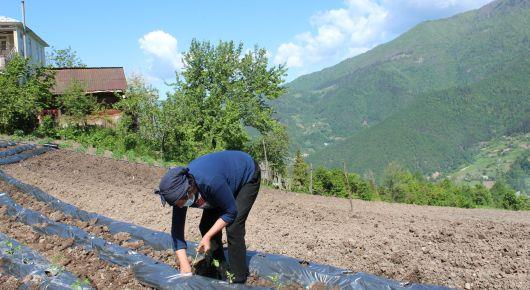Social protection measures offer help in countering COVID-19 impacts

Vulnerable groups have been hit hard by the current COVID-19 pandemic and its economic consequences, affecting people’s health, food security and nutrition, income, and employment status – particularly rural households, informal workers, smallholders, and agricultural producers who have limited access to resources that would allow them to cope with the negative impacts. As a result, countries in Europe and Central Asia have strengthened social protection programmes and 98 percent of them have introduced measures that cover all functions of social protection.
To this end, an FAO webinar, the fourth in a series of regional COVID-19 webinars, discussed practical solutions aiming to mitigate COVID-19 impacts and associated challenges, and provide opportunities through social protection measures.
“As ample evidence across the world demonstrates, social protection can increase household food security, eliminate barriers to access essential services, strengthen rural livelihoods and production capacity, and improve household resilience to withstand shocks and crises – all contributing to the reduction of rural poverty,” said Nabil Gangi, FAO Deputy Regional Representative for Europe and Central Asia. “As articulated in the FAO Social Protection Framework, social protection is considered as a key strategy for poverty reduction, food security, nutrition, and resilience.”
The discussion examined proven ways and tools, as well as analyzed strengths, weaknesses, and requirements of the adopted measures for the benefit of rural populations.
“Uniting efforts and working closely with our partners in ensuring social protection for all is essential for success,” emphasized Gangi.
The full webinar is available on YouTube.
8 July 2020, Budapest, Hungary
